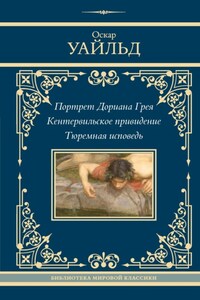PREFACE
With the publication of the present and the ensuing volume, "The Pearl of the Andes," I am enabled to perfect the most important series of Aimard's Tales of Indian Life and Adventure. To preserve uniformity, the volumes of this series should be arranged in the following order on the book-shelf; —
1. THE ADVENTURERS
2. THE PEARL OF THE ANDES
3. THE TRAIL-HUNTER
4. PIRATES OF THE PRAIRIES
5. THE TRAPPER'S BRIDE
6. THE TIGER SLAYER
7. THE GOLD SEEKERS
8. THE INDIAN CHIEF
9. THE RED TRACK
Gustave Aimard has a precedent in Fenimore Cooper for introducing the same hero in a long range of volumes, and, like his great predecessor, he has so arranged, that each work should be complete in itself, and not necessitate the purchase of another. But Aimard has one marked advantage over Cooper; for while "Leather-Stocking" is but a creation of the fancy, or, at the most, the type of the Backwoodsman, the Count Louis who figures as the hero of Aimard's series, is a real man. Count de Raousset Boulbon, had he succeeded in his daring attempt of founding an independent kingdom in Mexico, would in all probability have become the Napoleon of the West. A gallant adventurer and thorough gentleman, he staked his life upon the issue, and ended his career the victim of unparalleled treachery, as Aimard has faithfully recorded. Hence Aimard's romances have the great merit of being founded on an historic basis, and but little fiction was required to heighten the startling interest of the narrative.
Valentine Guillois, there is very little doubt, is intended for the Author himself, with all his qualities and defects. When he first reached the New World, he was the true, reckless Parisian; but constant intercourse with nature rendered him a generous and thoughtful friend of humanity. So soon as he returned to civilization, he began recording the history of his past life; not so much as a livelihood, as for the pleasure he felt in living once again the life of excitement and adventure which he had known among the Indians. Hence his books are written without an effort; they flow spontaneously from his pen; and the absence of artistic effect is the best guarantee of their truthfulness.
It is not surprising, consequently, that M. Aimard's books have met with such extensive popularity. They have been translated into nearly every modern language, and the Author is now generally recognised as the French Cooper. The reception given to his stories in this country has been most flattering, and each day heightens their popularity. Hence it is not too much to assume that they will become standard works, especially with young readers, for whom they are especially adapted; because M. Aimard has never yet written a line which could prove offensive to the most delicate mind.
During my last sojourn in America, chance, or rather my good star, led me to form an acquaintance with one of those hunters, or wood rangers, the type of whom has been immortalized by Cooper, in his poetical personage, Leather-Stockings.
The strange circumstance by which we were brought together was as follows. Towards the end of July, 1855, I had left Galveston, terrified at the fevers prevalent there, which are so fatal to Europeans, with the intention of visiting the north-west portion of Texas, a country I was then unacquainted with.
A Spanish proverb somewhere says, "It is better to go alone than in bad company;" and, like all other proverbs, this possesses a certain foundation of truth, particularly in America, where the traveller is exposed at each instant to the chance of meeting rogues of every hue, who, thanks to their seducing exterior, charm him, win his confidence, and take advantage of the first occasion to remorselessly plunder and assassinate him.
I had profited by the proverb, and, like a shrewd old traveller of the prairies, as I knew no one who inspired me with sufficient sympathy to lead me to make him my travelling companion, I had bravely set out alone, clothed in the picturesque dress of the inhabitants of the country, armed to the teeth, and mounted upon an excellent half wild horse, which had cost me twenty-five piastres – an enormous sum in those countries, where horses are considered as worth little or nothing.
I carelessly wandered here and there, living that nomadic life which is so full of attractions; at times stopping at a toldería, at others encamping in the desert, hunting wild animals, and plunging deeper and deeper into unknown regions. I had, in this fashion, passed through, without any untoward accident, Fredericksburgh, the Llana Braunfels, and had just left Castroville, on my way to Quichi. Like all Spanish-American villages, Castroville is nothing but a miserable agglomeration of ruined cabins, cut at right angles by streets choked with weeds, growing undisturbed, and concealing multitudes of ants, reptiles, and even rabbits of a very small breed, which spring up beneath the feet of the few passengers. The pueblo is bounded on the west by the Medina, a slender thread of water, almost dry in the great heat seasons; and on the east by thickly-wooded hills, the dark green of which forms a pleasing contrast with the pale blue of the sky.









